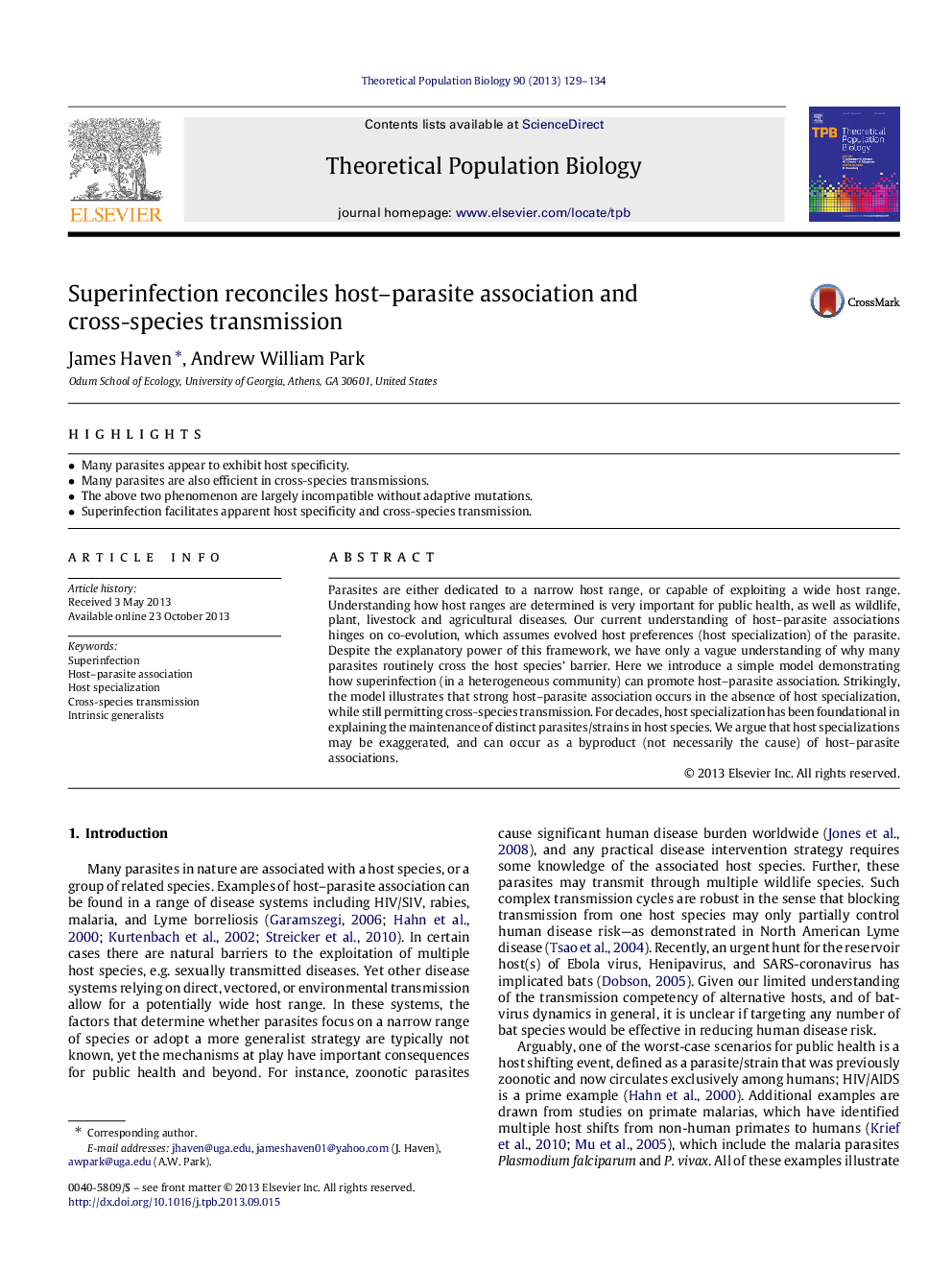| Article ID | Journal | Published Year | Pages | File Type |
|---|---|---|---|---|
| 6372404 | Theoretical Population Biology | 2013 | 6 Pages |
Abstract
Parasites are either dedicated to a narrow host range, or capable of exploiting a wide host range. Understanding how host ranges are determined is very important for public health, as well as wildlife, plant, livestock and agricultural diseases. Our current understanding of host-parasite associations hinges on co-evolution, which assumes evolved host preferences (host specialization) of the parasite. Despite the explanatory power of this framework, we have only a vague understanding of why many parasites routinely cross the host species' barrier. Here we introduce a simple model demonstrating how superinfection (in a heterogeneous community) can promote host-parasite association. Strikingly, the model illustrates that strong host-parasite association occurs in the absence of host specialization, while still permitting cross-species transmission. For decades, host specialization has been foundational in explaining the maintenance of distinct parasites/strains in host species. We argue that host specializations may be exaggerated, and can occur as a byproduct (not necessarily the cause) of host-parasite associations.
Related Topics
Life Sciences
Agricultural and Biological Sciences
Agricultural and Biological Sciences (General)
Authors
James Haven, Andrew William Park,
